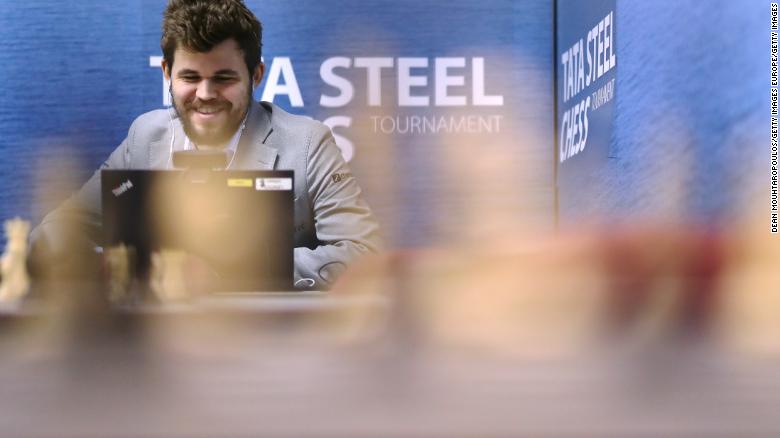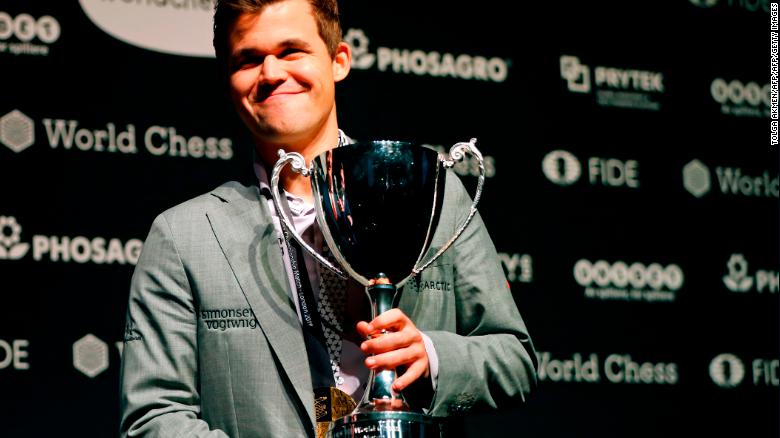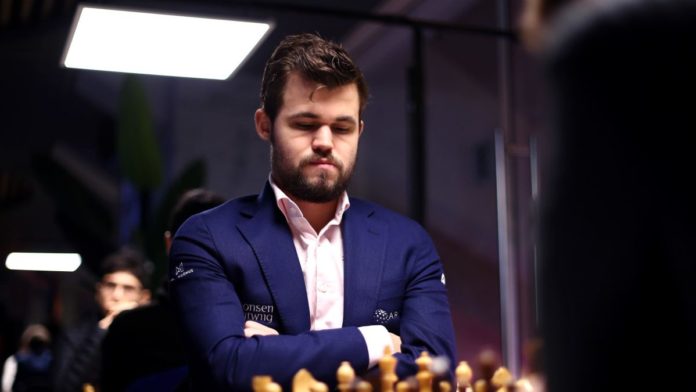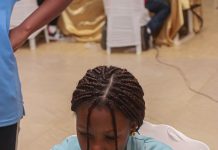Magnus Carlsen, the chess superstar, is making a new move to boost the sport’s popularity. The Norwegian world champion organized the Magnus Carlsen Invitational last month, an online chess tournament with a total prize fund of $250,000, making it the most lucrative online chess tournament in history. Having won the inaugural version of the competition, Carlsen now wants to combine four online chess tournaments — including the Invitational — to form the Magnus Carlsen Chess Tour, which will have a combined prize fund of $1 million, the highest ever in online chess. Three more “majors” will take place between May and August before the tour culminates in a grand final, which will take place between August 9-20.

Carlsen speaks on his computer in a press room. With much of live sport in hiatus because of the coronavirus, the opportunity to establish chess as a mainstream sport is a key reason behind the tour’s launch, says Carlsen.”The Invitational was a lot of fun and we heard great feedback from the players, our broadcast partners, and the viewers,” the 29-year-old Carlsen said in a statement.”While physical chess tournaments and sports are still either canceled or postponed, bringing an entire chess tour online is what I feel is right for chess now.”The tour will look to build on the success of the Invitational, which broke online viewer records for chess. It was the first online chess tournament to be broadcast on TV, going out on Spanish, German, Russian, Norwegian and Czech television. The top four players from the previous competition will automatically qualify for the next “major.”The grand final will be contested between the winners of the individual tournaments.

Carlsen with the FIDE world chess championship trophy after beating challenger, US player Fabiano Caruana (not pictured).The next tournament, the Lindores Abbey Rapid Challenge, which starts on May 19, will feature Carlsen, Hikaru Nakamura, Ding Liren, and Alireza Firouzja, who all competed in the invitational. Eight new players will also participate: Wesley So, Alexander Grischuk, Sergey Karjakin, Levon Aronian, Wei Yi, Daniil Dubov, Jan-Krzysztof Duda, and Yu Yangyi.
Source: CNN















